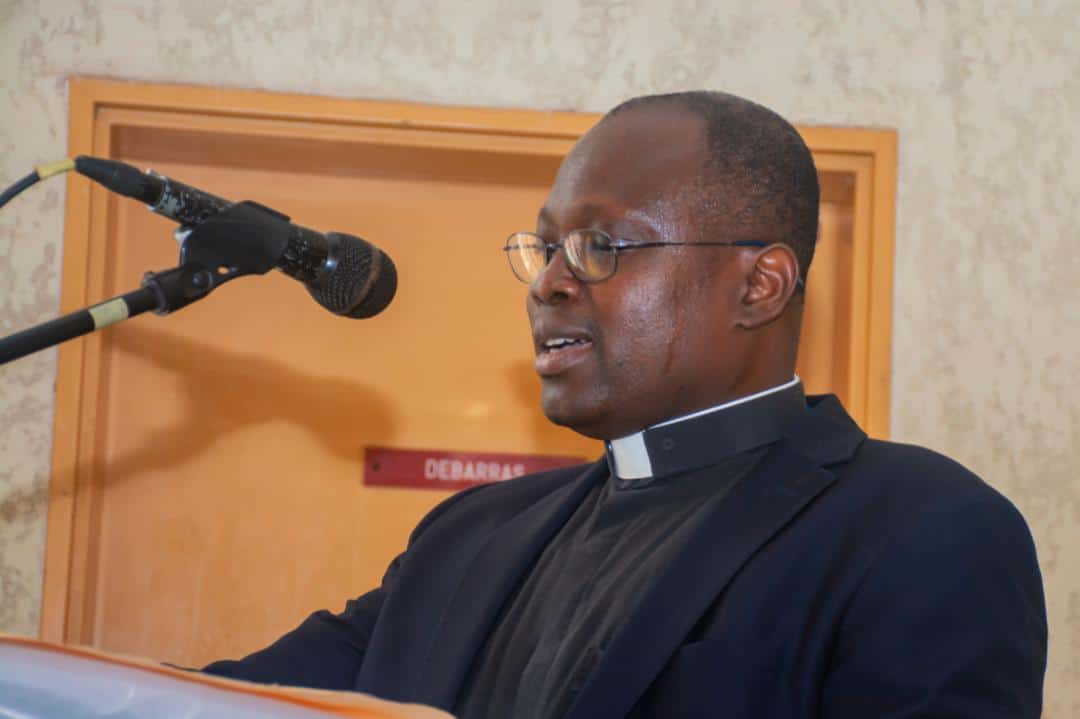Father Epiphane Kinhoun/Epiphane Kinhoun
Interview
A Jesuit originally from Benin, Father Épiphane Kinhoun is director of the Center for Therapy and Protection of Minors located in Yaoundé (Cameroon).
“For many, abused people are not victims but responsible for what happens to them”deplores to La Croix Africa the one who is also vice-rector of the Catholic University of Central Africa.
La Croix Africa: More than three years after the Rome summit on the protection of minors, what has changed in Africa? What observations do you make regarding sexual abuse in Africa and more specifically in Cameroon?
Father Epiphane Kinhoun: One can note changes such as the setting up of structures in charge of the question of abuse in several dioceses as well as in certain religious congregations; greater attention to the status of abuse cases; a more awakened conscience to prevent as much as possible the cases of abuse on the vulnerable people.
From the point of view of dealing with cases of abuse, the situation remains complex. The context which is ours undoubtedly requires another approach to uproot from the Church the wound of the abuses on the minors, according to the words of the pope. The denunciation of abusers must take into account the absolute protection of victims. And it is on this aspect that the problem of the right approach arises with acuity. Admittedly, we don’t yet know what’s best for real change from this perspective.
La Croix Africa: Surveys show that victims rarely use the sexual abuse reporting centers required by the Vatican and created by the dioceses. What do you think explains this?
Father Epiphane Kinhoun: I have just mentioned the difficulty posed by whistleblowing in our context. The situation is complex as much on the part of the victim (with his family), the abuser (with his relatives), as his hierarchical superiors. We must add to these actors directly involved in the management of cases of abuse the great involvement of the social environment which does not seem at all disposed to the protection of the victim after the denunciation.
This is where the real problem arises: the victim, in addition to the cruel wound inflicted by the abuse, seriously risks the rejection of those close to him (his family), marginalization and stigmatization in his social environment, the accusation of many who consider the abused person responsible for the abuse and finally social or physical death due to the revenge of the abuser or the abuser’s relatives.
The abused human would rather survive with their injuries than die. In such a context where everything leads to the annihilation of the victim, the latter can only be more vulnerable. It is considered, in certain circumstances even, as a given that must be silenced so that life can continue its normal course. The structures for reporting cases of abuse that have been put in place seem to protect the institution more than the victim.
La Croix Africa: What do you recommend for better protection of minors in Africa?
Father Epiphane Kinhoun: It is important to do everything possible so that these words of Pope Francis can have a real effect: the mission of the Church will be to listen to, defend, protect and care for abused, exploited and forgotten minors, where that they find themselves. Encourage and support the listening, monitoring and support of victims who dare to confide.
This mission is not only that of a few aware of the situation but of the whole Church. We must therefore continue to raise awareness of the seriousness of the abuse of vulnerable people. This is not obvious: for many, abused people are not victims but responsible for what happens to them. From this angle, we are witnessing a relativization of the seriousness of the situation of the victim who is then even more vulnerable. The effective awareness of the seriousness of the abuse of vulnerable people remains, in my opinion, an important step for an effective fight against this scourge which rages in families, in schools, in religious frameworks, in short, in our societies.
How to make more sensitive to the situation of the victims of abuse a society in which the abusers are great untouchable idolaters? How to succeed in shaking the omnipotence of the abusers in the face of the explicit fragility of the vulnerable people abused? These are the real questions that we cannot help asking ourselves constantly.
La Croix Africa: Can you tell us about your structure for the protection of minors?
Father Epiphane Kinhoun : The Center for Therapy and Protection of Minors (CTP) was founded by the Jesuit Provincial of West Africa in 2019, following the recommendations of Father Hans Zollner, member of the Pontifical Commission for the Protection against abuse and responsible.
This center has two approaches to the situation of abuse of vulnerable persons. First of all, a curative approach consisting of listening, monitoring and supporting abused people. It is a response to Pope Francis’ request to defend, protect and care for abused, exploited and forgotten minors, wherever they are.
Second aspect, we have a preventive approach by offering formation in affective maturity according to the requests of religious communities or associations of religious congregations as well as by major superiors. The Center thus has a reception center for training sessions and offers a space for contemplation, psychological and spiritual renewal. It also creates the exchange-training framework for those responsible for training in several religious congregations.
Collected by Lucie Sarr
“Abuse reporting structures seem to protect the institution more than the victim”

